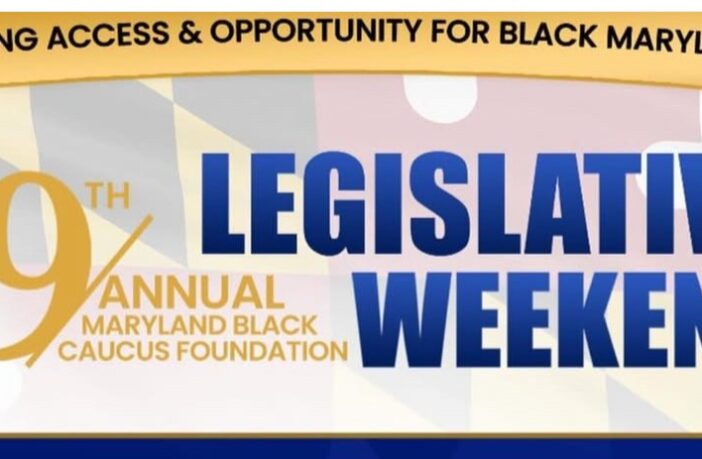Each year the Maryland Black Caucus Foundation hosts the Annual Legislative Weekend to focus on top issues for state lawmakers. The Business Over Breakfast session is a staple event.
(AFRO Photo / Alexis Taylor)
By Megan Sayles
AFRO Business Writer
msayles@afro.com
The Maryland Black Caucus Foundation hosted its 29th annual Legislative Weekend on Nov. 22 to Nov 23. The event serves as a time for policymakers, thought leaders, industry experts and the community to come together to discuss legislative avenues for advancing Maryland’s Black agenda. This year’s theme was “Advancing Access and Opportunities for Black Marylanders,” a reflection of the organization’s dedication to equity and empowerment for African Americans.
A key event of the weekend was Business Over Breakfast, which took place on Nov. 23. The gathering featured a panel conversation moderated by Maryland State Treasurer Dereck E. Davis with speakers including Tammi Thomas, chief development and marketing officer of TEDCO; Bruce Gartner, executive director for the Maryland Department of Transportation; Y. Maria Martinez, special secretary of Small, Minority and Women Business Affairs; and Atif T. Chaudhry, secretary of Maryland’s Department of General Services (DGS).
Much of the discussion centered on increasing minority, veteran and women business participation in the state’s procurement and contracting ecosystem. Though Maryland has a goal of 29 percent in minority business enterprise (MBE) participation across 70 agencies, this benchmark has been consistently missed for more than a decade.
“As far as our office goes, we are looking at technology, clean energy, life sciences and construction as areas of growth, but there are going to be some challenges that we’re going to be facing,” said Martinez. “Understanding how we can best work together and how we can strengthen Maryland is the imperative and the task that the governor has assigned to me and other agencies to work on.”
According to Martinez, the veteran-owned/service disabled veteran-owned business enterprise (VSBE) program has tripled under the leadership of Governor Wes Moore. In fiscal year 2023, the small business reserve (SBR) program and MBE program both experienced 12 percent increases.
Maryland’s VSBE goal was also changed from 1 percent to 3 percent in September as part of an effort to open up access and more opportunities for veteran entrepreneurs.
“Our numbers need to grow more, but they’re going in the direction that the governor is wanting them to go in—they’re going in a positive direction,” said Martinez. “There is much more to do, and we’re committed to doing that.”
In spite of the upticks in MBE, SBR and VSBE programs, issues in effectively engaging these businesses remain. Thomas noted that state agencies, corporations and other organizations need to do a better job of reaching entrepreneurs.
“It’s up to us to make sure that the information is out there,” said Thomas. “Some of these resources that we have out here for these small businesses are too hard to access.”
This becomes especially important as many minority businesses are shut out of the networks that their counterparts have and have less capacity to go after contracts. Thomas said there needs to be tailored support for businesses to compete for capital and contract opportunities.
“At TEDCO, we created resources to help to level the playing field,” said Thomas. “We have programs to help them to pitch. We have network advisors that are bankers, lawyers and accountants who help them to be able to compete for funding.”
Leading up to Business Over Breakfast, the Legislative Weekend featured sessions on Black maternal health, equity in the classroom, environmental justice, Black homeownership and how to protect diversity, equity and inclusion programs in the small business arena.
As the country prepares for new leadership, concerns over the future of small business programs aimed to advance minority businesses have mounted. Chaudhry addressed the apprehension at the close of Business Over Breakfast.
“The governor, under his leadership, is making sure that we, as a state, are prepared for anything and the impact associated with that,” said Chaudhry. “We, as a state, will absolutely fight to make sure that we continue to support these social economic programs and support minority, small businesses and veteran businesses across the state.”



